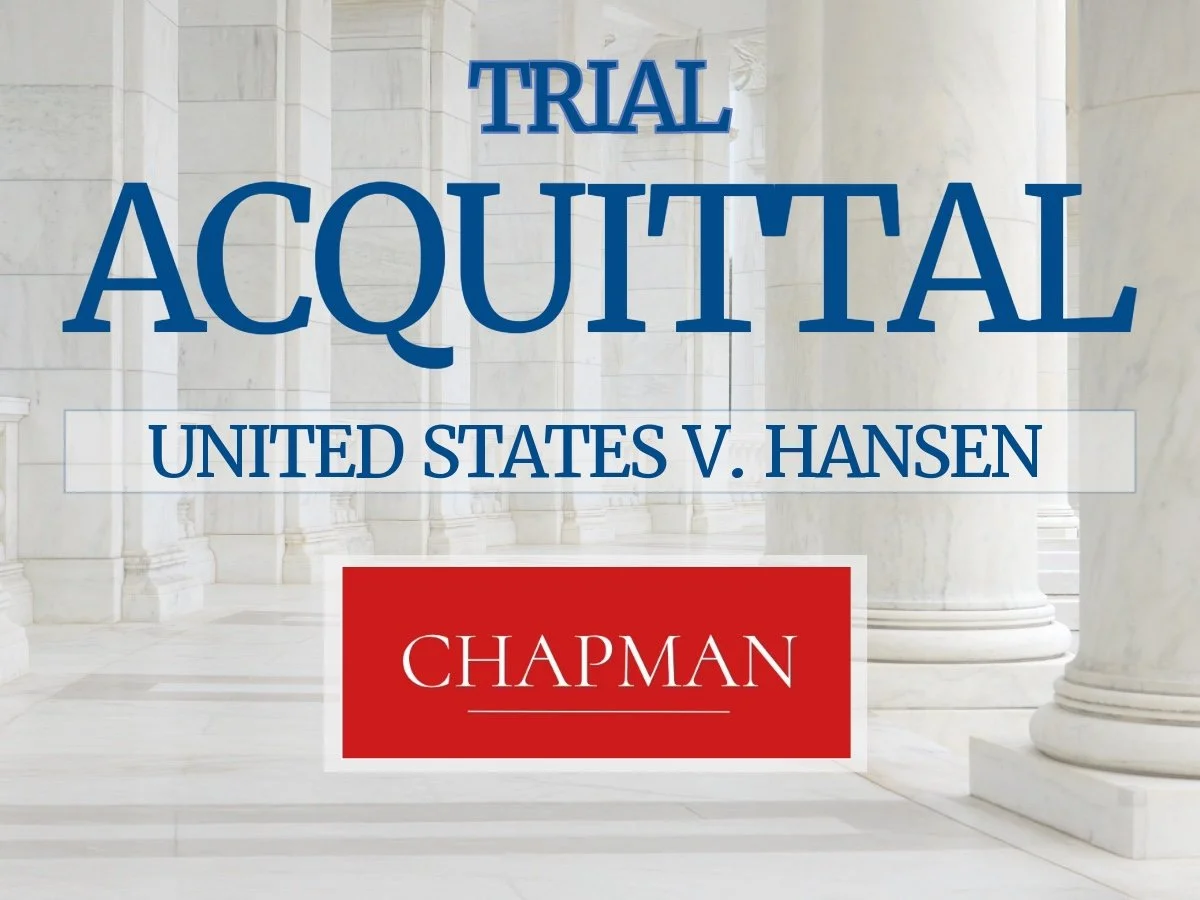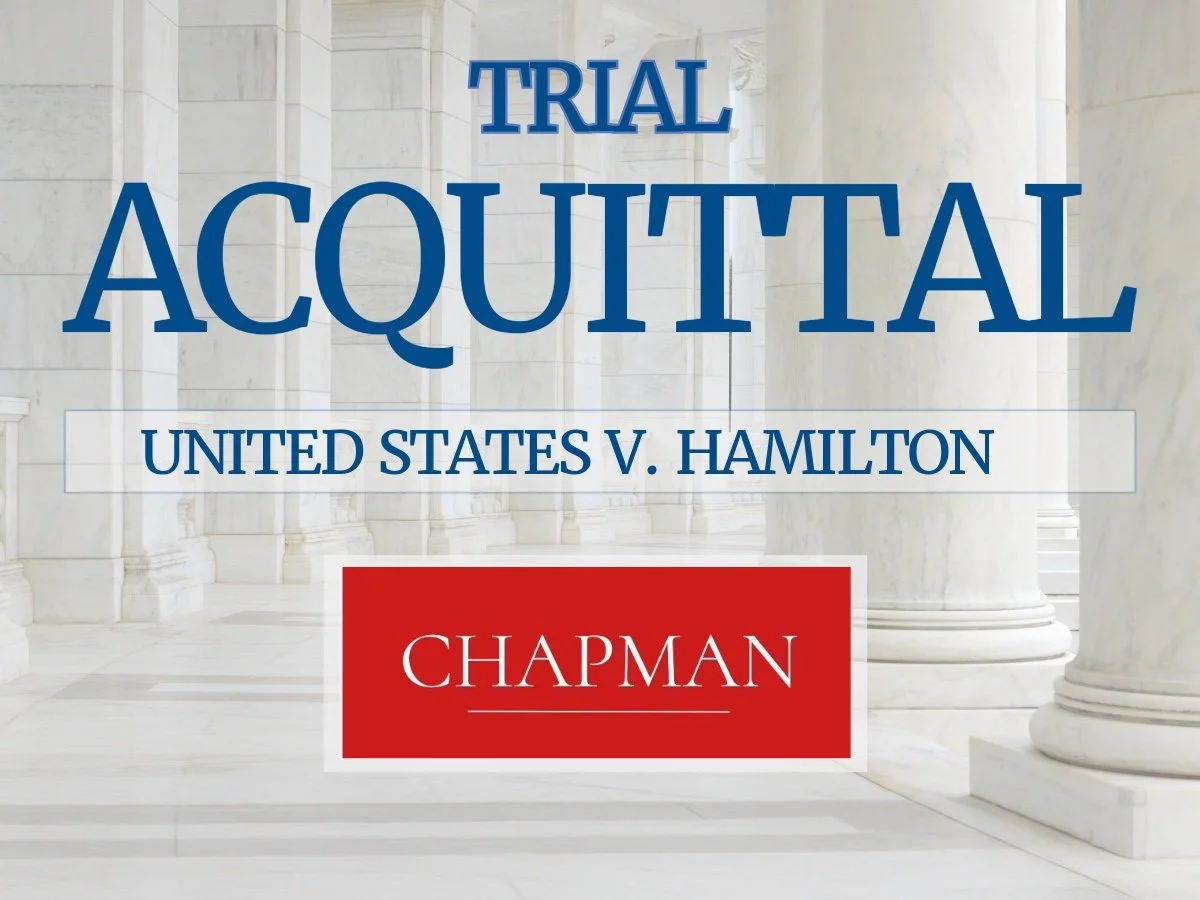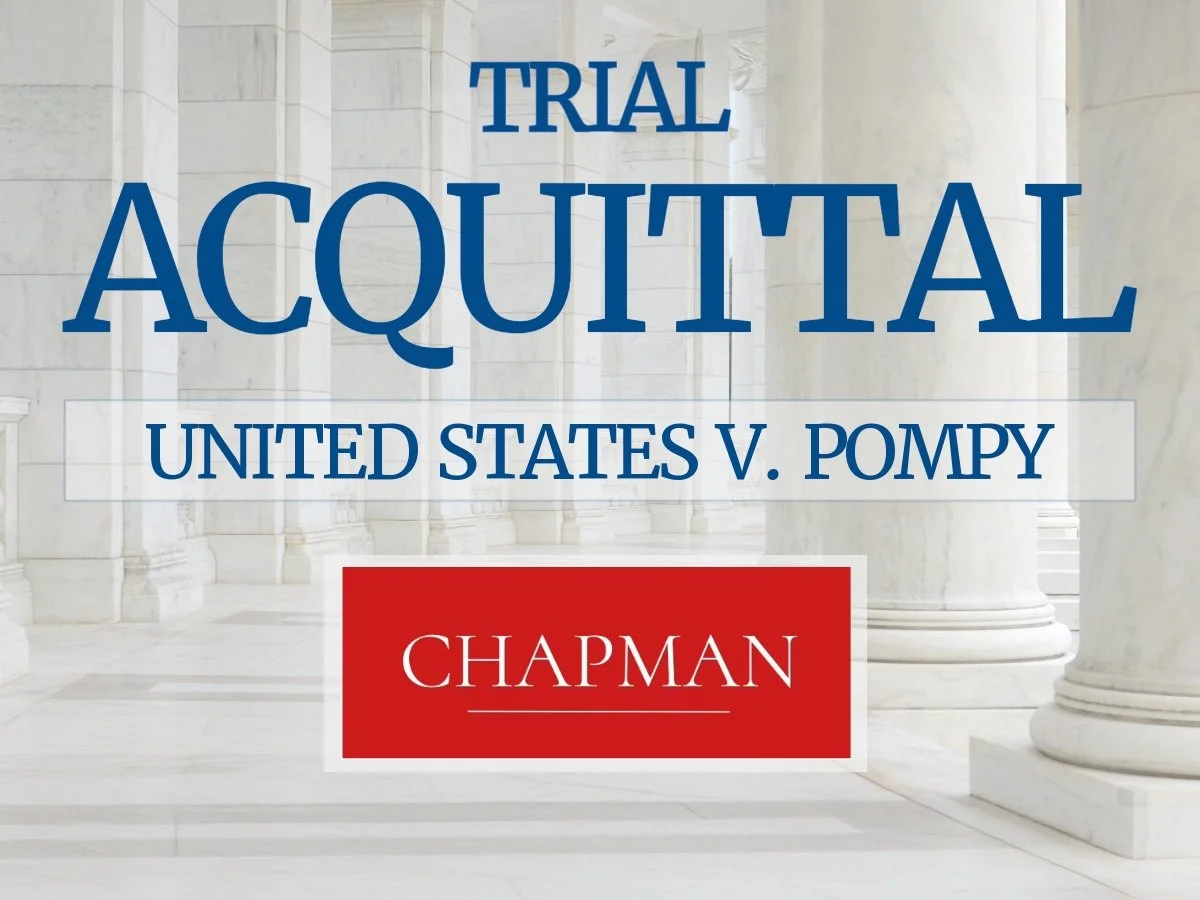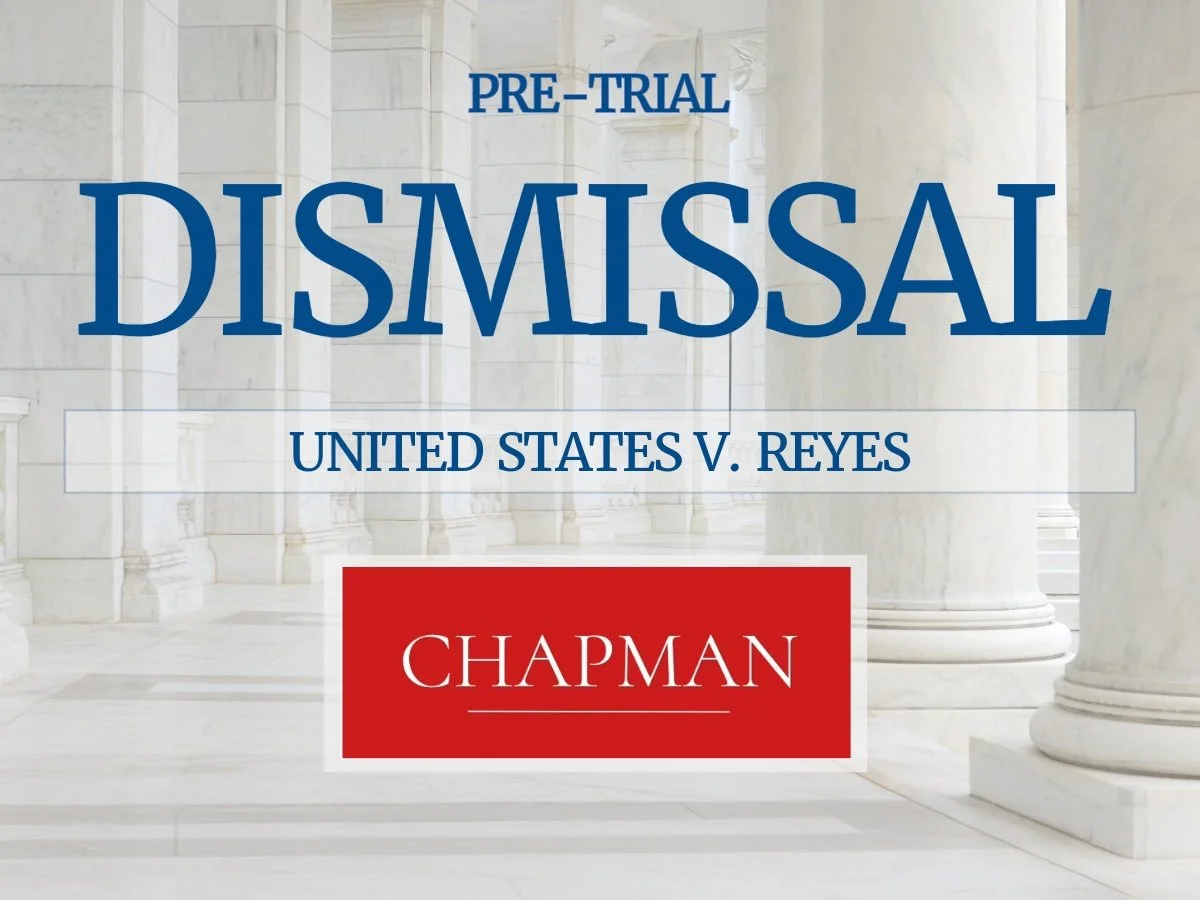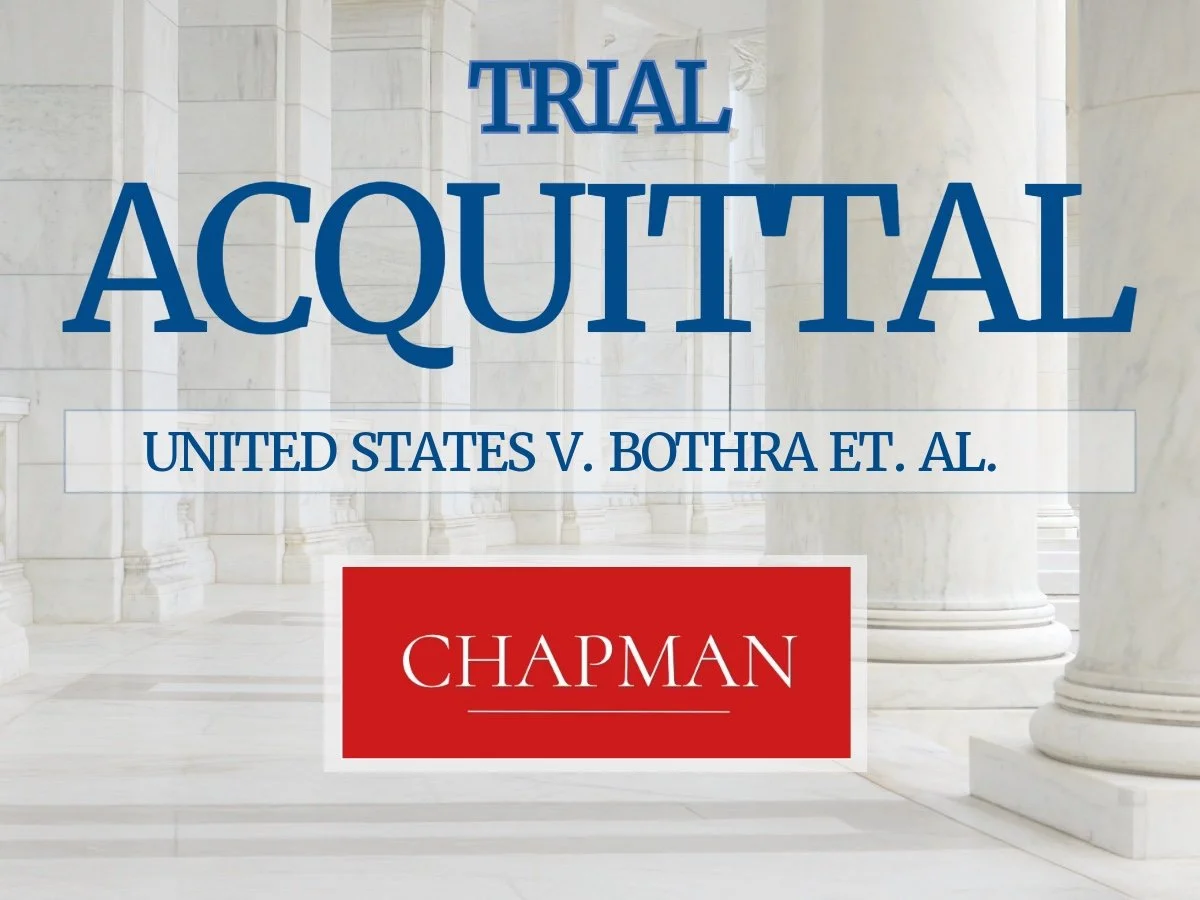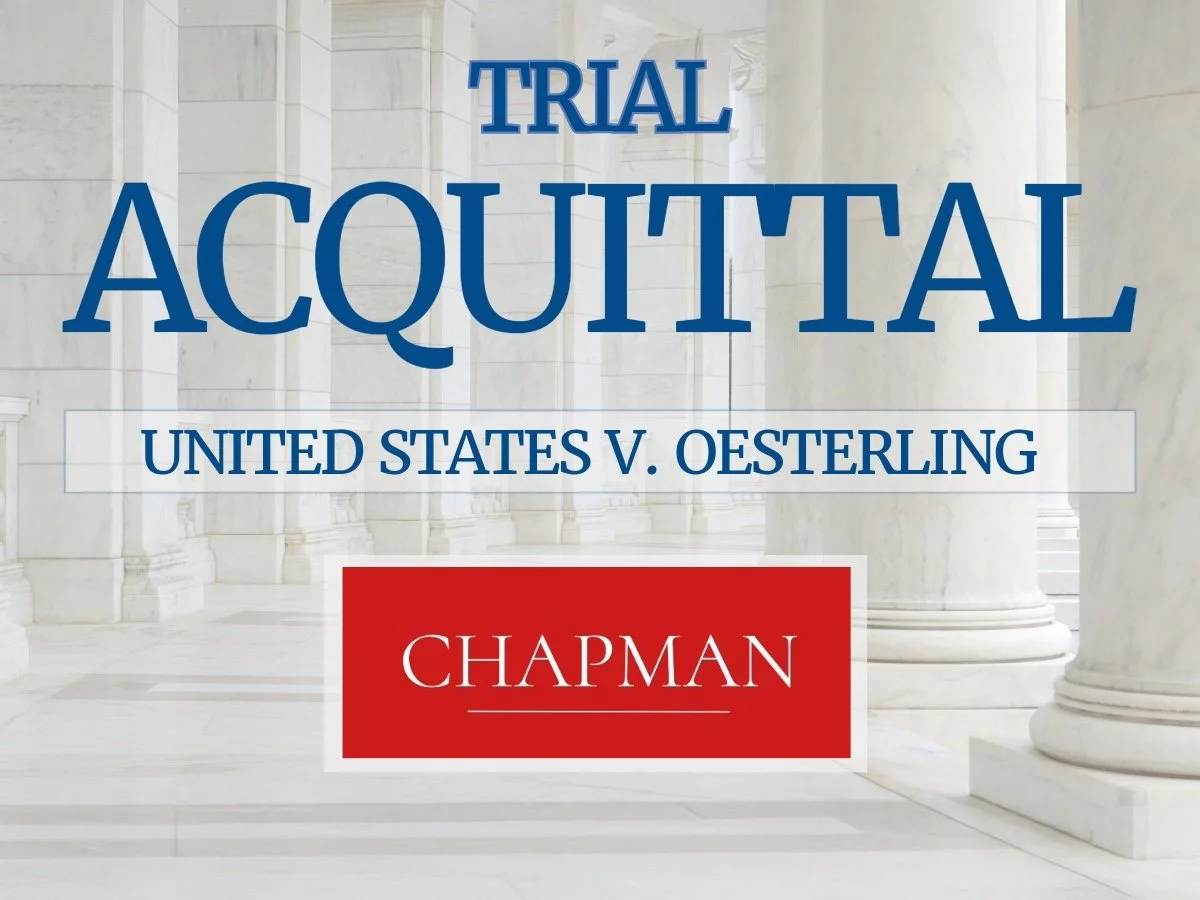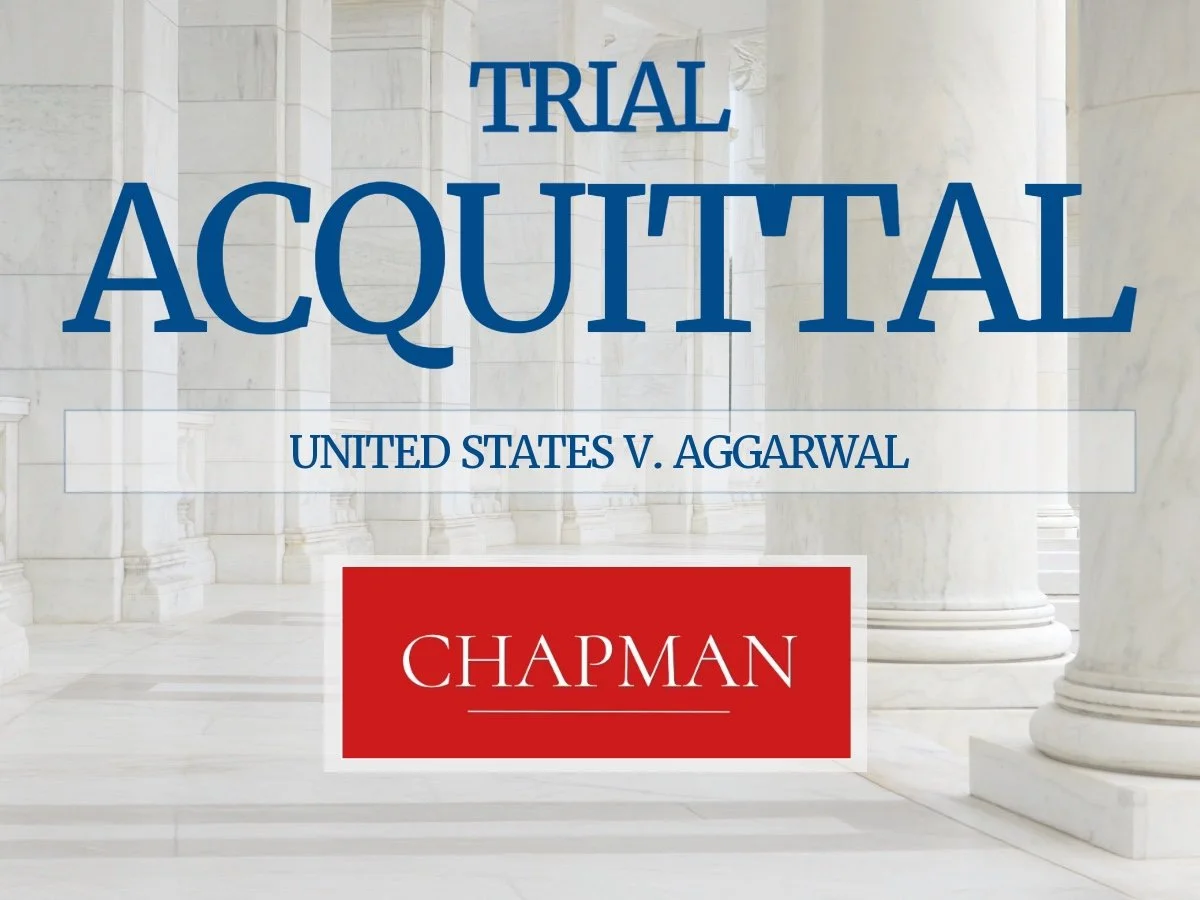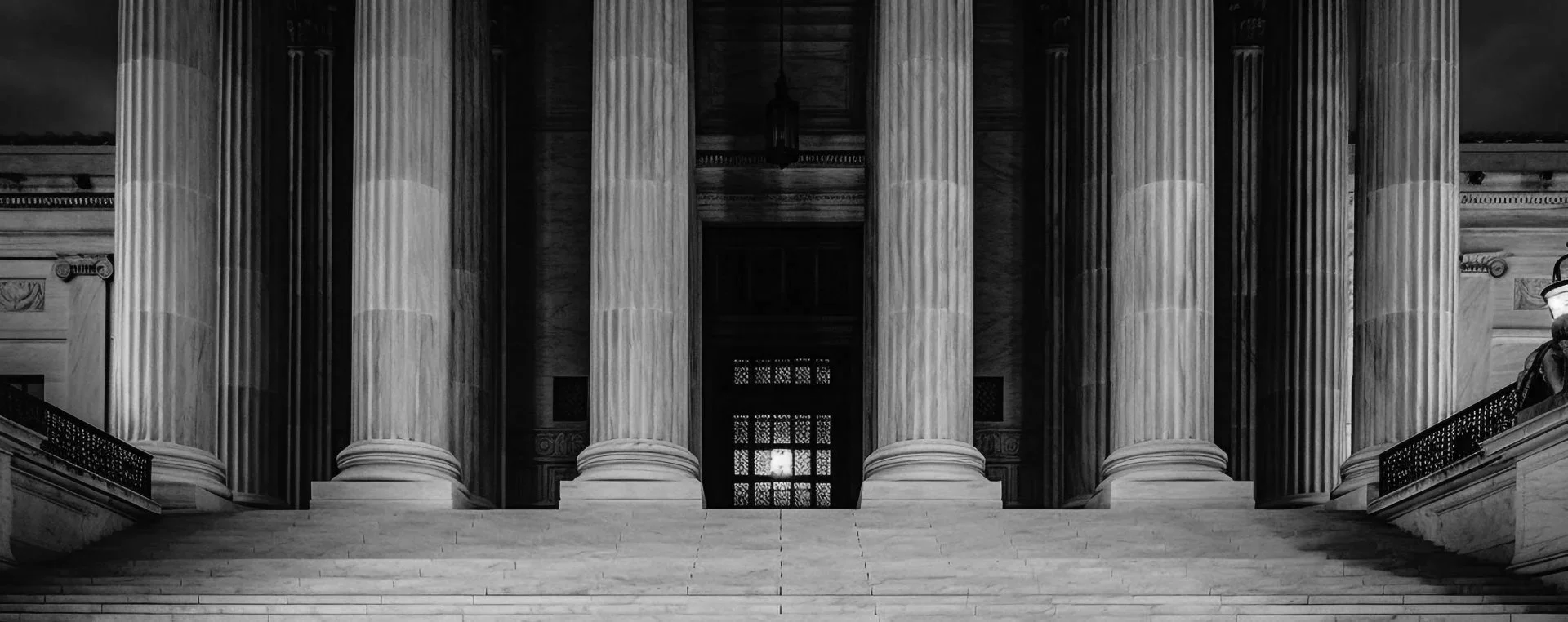
175+ Federal Counts
Acquitted
UNMATCHED RESULTS
Arraignment in Federal Court: A Vital Step
When a federal defendant has been charged with a federal crime by a federal prosecutor, they will proceed to arraignment. Arraignment is a critical stage in any federal criminal case and must be treated seriously. Mistakes at this point can be hard to overcome and may have drastic consequences for the rest of the defense. Defense counsel must ensure that:
- The client is fully prepared.
- The client understands the charges.
- The client can make an effective presentation to secure pre-trial release.
Purpose and Governing Laws
Arraignment in federal court is a process ensuring the defendant understands the formal charges filed through an indictment or “information.” It’s governed by:
- Rule 10 of the Federal Rules of Criminal Procedure
- 18 U.S.C. § 3143
Timing of Arraignment
An arraignment is the first step in the federal criminal defense process. It occurs after:
- The defendant has been placed in custody, or
- Defense counsel is informed of federal criminal charges.
The defendant is then taken to “duty court” before a federal magistrate judge. This short hearing ensures the defendant understands the charges and determines whether they will be released pending trial.
Ensuring the Defendant Understands the Charges
Rule 10 Requirements
Rule 10 states that an arraignment must be conducted in open court and include:
- Confirming the defendant has a copy of the indictment or information.
- Reading (or summarizing) the indictment or information.
- Asking the defendant to plead to the indictment.
Let’s go over each step in detail.
What Happens at a Federal Arraignment?
The arraignment typically includes:
- A magistrate judge
- The prosecutor
- Defense counsel
- A federal pre-trial services officer
1. Identification & Purpose:
The judge asks the defendant to identify themselves and explains the purpose of the arraignment.
2. Reading the Charges:
The judge either reads the indictment verbatim or summarizes the charges if the defendant
waives a formal reading (which is common, as defense counsel often waives it).
3. Confirmation of Review:
The judge asks if defense counsel has discussed the charges with the defendant.
4. Entering a Plea:
The judge asks the defendant which plea they wish to enter.
Three Types of Pleas
- Not Guilty: The defendant does not wish to plead guilty and requests a trial date to determine guilt or innocence.
- Guilty: The defendant does not wish to contest the charges and proceeds to the sentencing phase. It is unusual to plead guilty at an initial arraignment unless a prior agreement exists. Typically, a guilty plea occurs later at a “change of plea hearing.”
- Standing Mute: Because the defendant has the right to remain silent, they can stand “mute” at arraignment and not formally answer the charges. The court will then enter a plea of not guilty. In modern federal practice, this offers little advantage.
Release or Detention Pending Trial
Once a plea is entered, the judge moves on to the question of release or detention pending trial. This decision requires input from the prosecutor, pre-trial services, and the defense attorney.
Pre-Trial Services Interview
Prior to arraignment, the defendant meets with a pre-trial services officer—ideally in the presence of criminal defense counsel. The role of pre-trial services is to collect facts to help the judge decide whether the defendant should be released or detained pending trial. If released, the judge sets conditions often called “bond conditions.” Pre-trial services creates a report and presents it to the judge, offering background on the defendant and assessing their risk of flight or danger to the community.
Pre-Trial Release Factors
The pre-trial services officer examines factors including, but not limited to:
- Recent foreign travel
- Significant foreign contacts
- Significant liquid assets
- Assets outside the jurisdiction of the court
- Citizenship
- Criminal history
- Attempts to flee or failure to appear for arraignment
- Age and family status
- Education level
- Ties to the community
- Employment status
- Substance abuse issues
After summarizing these factors, pre-trial services recommends whether the defendant can be released safely or should remain detained. Their recommendation is guided by 18 U.S.C. § 3142.
Three Options Under 18 U.S.C. § 3142
- Release on personal recognizance or unsecured bond.
- Release with specific conditions (e.g., restricted travel or regular check-ins).
- Detention, if no conditions can ensure appearance or the safety of the community.
The Law of Pre-Trial Release (18 U.S.C. § 3142)
A federal magistrate or judge is required to release a defendant pending trial unless the judge finds the defendant is a risk of flight or a danger to the community. Even then, the judge must impose the “least restrictive conditions” that will ensure the defendant appears and does not endanger the public.
Typical Bond Conditions
A judge often imposes these conditions pending trial:
- No commission of any new federal, state, or local crime
- Remaining within the court’s jurisdiction or the United States
- Maintaining employment
- Avoiding contact with witnesses or victims
- Regular reporting to pre-trial services
- No possession of a firearm
- No use of alcohol or dangerous drugs
- Surrender of passport
- Agreeing to forfeit a specific sum (the bond) if failing to appear
- Any other special condition required by the court
Obtaining Release Pending Trial
Effective defense counsel will strongly advocate for the defendant’s release, minimizing overly burdensome conditions. This is crucial because remaining in federal custody pending trial makes defense preparation more difficult and significantly increases the likelihood of conviction. Federal cases can last 18 months or longer, so detention throughout that period is a major hardship.
Aggressive advocacy begins before entering the courtroom. Defense counsel typically contacts the prosecutor to determine if they plan to seek detention. If they are, counsel must be prepared for a detention hearing, where witnesses and evidence may be presented to argue for release.
The Detention Hearing
If the prosecutor seeks detention, they receive up to three days to prepare, during which the defendant remains in custody. At the hearing:
- The defendant, prosecutor, pre-trial services, and defense counsel appear before a magistrate.
- Both sides may call witnesses and present evidence.
- Many defense attorneys make the mistake of not calling witnesses; however, presenting friends, family, and colleagues can be invaluable in proving minimal flight risk or danger to society.
- Prosecutors often emphasize the severity of the offense or the defendant’s financial means to flee. Counsel should be prepared with mitigating evidence (e.g., stable community ties, voluntary surrender, lack of criminal history).
Rebutting Prosecutorial Claims
Prosecutors tend to highlight:
- Severity of the Alleged Conduct: Defense counsel should offer mitigating details to counter these claims.
- Risk of Flight Due to Financial Means or Foreign Contacts: Defense can rebut with evidence of legitimate finances, stable employment, and strong personal connections that tie the defendant to the jurisdiction.
Witness testimony—especially from the defendant’s social circle—can be key in presenting the defendant in a positive light.
Appealing a Detention Decision
If the magistrate judge decides to detain the defendant, the defense can appeal this decision to a federal judge and request a new hearing. A good defense lawyer will rarely leave a detention decision unchallenged, as securing the client’s release significantly improves the chances of a favorable outcome at trial.
Back to the Table of Contents
For more on federal criminal defense—including indictments, grand jury proceedings, and federal sentencing—visit the Federal Criminal Defense Guide Table of Contents.
About the Author
Ron Chapman has devoted his career to defending federal defendants in high-profile federal criminal cases. He is also the author of the Amazon best-selling book Fight the Feds: Unraveling Federal Criminal Investigations.
Throughout his career, Ron has discovered that many individuals facing federal charges lack the resources and understanding needed to fight back effectively. Both this website and his book aim to bridge that gap by providing practical strategies and insights learned from challenging the federal government.
If you haven’t already, return to the beginning of this guide to review other relevant sections, and consider purchasing Fight the Feds to grow your knowledge of federal criminal law and investigations.





